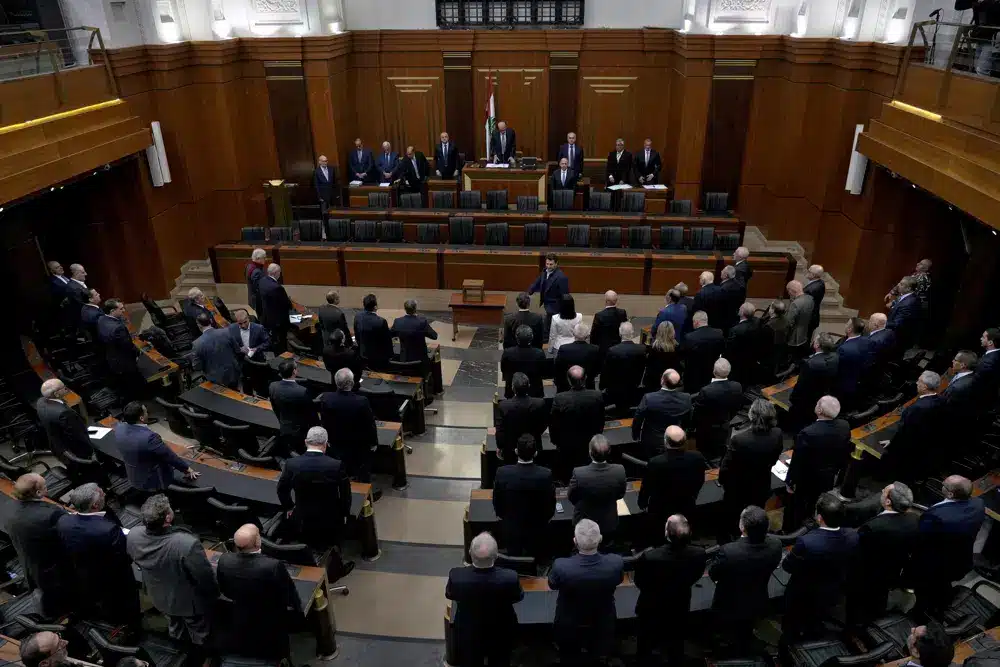Lebanon’s political landscape is precariously perched, as the nation’s lawmakers, on their twelfth endeavour, once again failed to elect a president. The critical impasse, exacerbated by antagonism between Hezbollah, with its Iranian allegiance, and other factions, threatens to propel Lebanon into an extended period of governance void. As the nation already grapples with a crippling economic crisis, the imperative for leadership is paramount.
The electoral conundrum: Frangieh vs. Azour
The election in focus is distinctive in the sense that the Lebanese constitution dictates that the president must be a Maronite Christian, a testament to Lebanon’s intricate sectarian power-sharing system. This particular electoral duel witnessed Sleiman Frangieh, backed by Hezbollah, contend against Jihad Azour, a financial luminary favoured predominantly by Christian and independent representatives.
Despite spirited campaigns, neither contender could muster the requisite support to clinch victory; Azour secured 59 votes to Frangieh’s 51, in a parliament of 128 seats.
The evaporating quorum: a parliamentary tale
As the parliament convened for this highly anticipated election, a curious phenomenon transpired. The lawmakers, having cast their votes, steadily deserted the parliamentary chamber, resulting in the loss of quorum, rendering the initiation of the second round of voting – where a simple majority of 65 is sufficient – impossible.
This evaporation of quorum is not unfamiliar in the Lebanese political scene, and often, as conjectured by analysts, serves as a deliberate strategy employed by Hezbollah and its allies to disrupt the electoral process.
The need for consensus: words of the wise
In the wake of yet another abortive attempt, Nabih Berri, the Parliament Speaker, implored his fellow lawmakers to cease the blame game. He asserted that consensus and dialogue are the sole accelerants that can catalyse the presidential election process. The Speaker’s admonition, however, was bereft of any concrete schedule for a subsequent electoral session.
International reverberations: a cry for unity
The international community, cognisant of Lebanon’s tribulations, has persistently entreated the nation’s politicians to elect a consensus presidential candidate, instrumental in actualising the vital reforms needed to unlock a cascade of foreign loans.
Additionally, the power vacuum is not isolated to the presidency. Lebanon has been under the stewardship of a caretaker government with circumscribed authority for over a year, further enervating its political machinery.
The candidates: a divergence of paths
Sleiman Frangieh, of an illustrious political lineage, and known for his camaraderie with Syrian President Bashar al-Assad, avowed that, if elected, he would be a president for all Lebanese, despite his divisive allegiances.
Contrastingly, Jihad Azour, with an esteemed financial background including a tenure as Finance Minister and a directorship at the International Monetary Fund, proclaimed his aspiration to contribute towards resolution rather than conflict.
The analyst’s eye: what lies ahead
Karim Bitar, a seasoned analyst, posits that the series of futile election attempts could well be a manoeuvre by political forces to evaluate their electoral muscle. A protracted stalemate could ultimately culminate in negotiations that may necessitate a compromise candidate – a “third-man solution.”
As the Lebanese parliament fails to elect the country’s president, the spotlight rests on its lawmakers to navigate through sectarian divides, align their compasses towards consensus, and bestow upon the nation the leadership it profoundly needs. The global fraternity, as epitomised by calls from the United States and France, keenly awaits a resurgence of Lebanese unity and progress.
Image Credit: AP Photo/Bilal Hussein



















